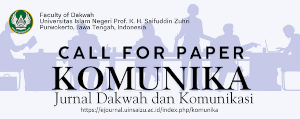KARL MARX DAN FRIEDERICH NIETZSCHE TENTANG AGAMA
DOI:
https://doi.org/10.24090/komunika.v7i1.365Keywords:
Karl Marx, Friedrich Nietzsche, opium, the will to power, work.Abstract
Karl Marx and Friedrich Nietzsche are two figures that are considered controversial inreligious studies. Both stated that ‘religion is the opium and the God is dead’ are deemed to havepassed the limits of tolerance. As a result, both are regarded as insane person in their time.When they are examined more deeply, both statements expressed deep concern over thesocial situation of the people that suffer as a result of oppression and domination. In thissituation, religion precisely be one that encourages people to behave naive and counterproductiveto the objectives of humanitarian material. Thus, “religion is the opium and God is dead†aresocial provocation and criticism for people to get out of the traps of stagnation.The purpose of human life is material. For Marx, human nature is working, while forNietzsche, it is the willing to power. This means that human will be humanic if it human is ableto express in productive work that is free from domination and have the will to implement thepowers that are pushing for continually active and creative. Initially, religion supports human tomanifest true humanity but evolved into rituals that hinder the process of humanization.Downloads
Download data is not yet available.
Downloads
Issue
Section
Articles
License
Authors who publish with this journal agree to the following terms:
- Authors retain copyright and grant the journal right of first publication with the work simultaneously licensed under a Creative Commons Attribution-ShareAlike 4.0 International License that allows others to share the work with an acknowledgement of the work's authorship and initial publication in this journal.
- Authors are able to enter into separate, additional contractual arrangements for the non-exclusive distribution of the journal's published version of the work (e.g., post it to an institutional repository or publish it in a book), with an acknowledgement of its initial publication in this journal.
- Authors are permitted and encouraged to post their work online (e.g., in institutional repositories or on their website) prior to and during the submission process, as it can lead to productive exchanges, as well as earlier and greater citation of published work (See The Effect of Open Access).
























